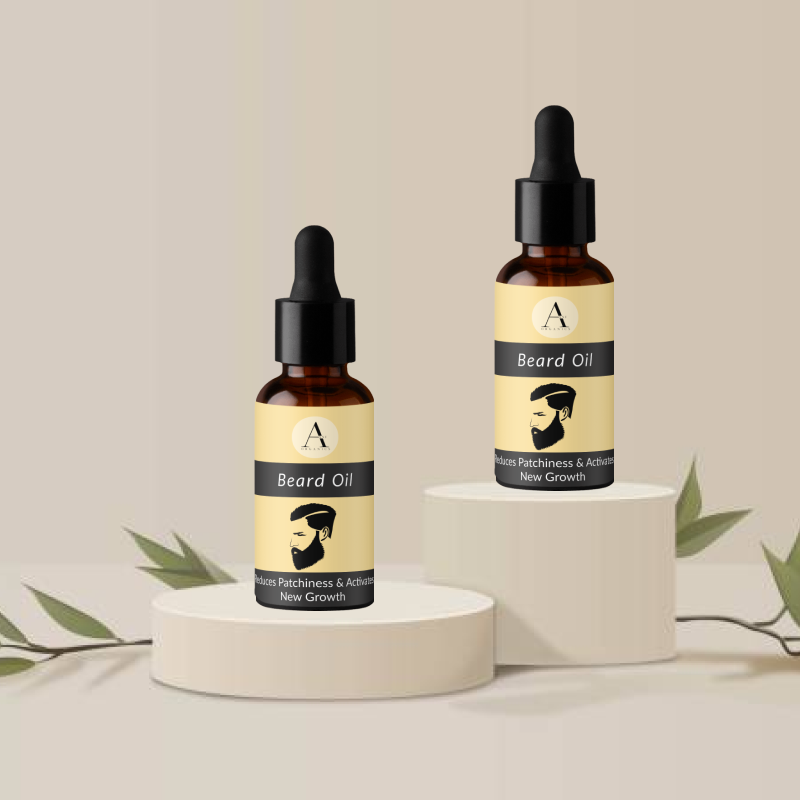No products added!
Healthy, shiny hair isn’t just a sign of beauty—it’s a sign of overall hair health. Whether you’re struggling with dryness, hair breakage, or frizz, finding the right hair care routine is essential. For many, hair oils have become a go-to solution for nourishing hair and giving it that desired luster. If you’re looking to transform your hair, incorporating a high-quality hair oil can be the game-changer you need.
In this comprehensive guide, we’ll walk you through the benefits of hair oil, how it works, and how to incorporate it into your routine for the best results.
What Makes Hair Oil So Effective?
Hair oil works wonders by deeply penetrating the scalp and hair strands, delivering essential nutrients where they’re needed most. Unlike many chemical-laden hair products, hair oils are packed with natural ingredients that hydrate and protect your hair. The result? Stronger, shinier, and healthier hair from root to tip.
If you have damaged or dry hair, using a natural oil can help restore moisture, reduce split ends, and promote healthy growth. On the other hand, if you have oily hair, a light, non-greasy oil can help balance your scalp’s oil production while adding softness and shine to your hair.
Key Ingredients in Hair Oil and Their Benefits
The effectiveness of any hair oil comes down to its ingredients. Here are some of the most beneficial oils used in quality hair oil products:
Coconut Oil: Known for its deep moisturizing properties, coconut oil penetrates the hair shaft, preventing protein loss and reducing breakage. It’s ideal for anyone with dry or damaged hair.
Argan Oil: Often referred to as “liquid gold,” argan oil is rich in essential fatty acids and Vitamin E. It works wonders for taming frizz, adding shine, and repairing damaged hair.
Castor Oil: Packed with Vitamin E and proteins, castor oil is known to promote hair growth and strengthen hair follicles. It’s an excellent choice for those looking to encourage thicker hair.
Jojoba Oil: This oil closely resembles the natural sebum your scalp produces, making it an excellent option for balancing oil production. It hydrates the hair without making it greasy.
These oils work in harmony to nourish your hair and scalp, encouraging growth, improving texture, and giving your hair a beautiful, healthy shine.
How to Use Hair Oil for Maximum Results
Using hair oil correctly is key to getting the most out of it. Here’s a simple, step-by-step guide to incorporating hair oil into your routine:
Step 1: Choose the Right Oil for Your Hair Type
Different oils suit different hair types. For example, if you have dry hair, opt for something heavier like coconut or castor oil. For oily hair, a lightweight option like jojoba or argan oil works best.Step 2: Warm the Oil
To enhance absorption, warm a small amount of oil between your palms or in a microwave-safe container. Warm oil penetrates the scalp and hair more effectively.Step 3: Massage the Scalp
Using your fingertips, gently massage the oil into your scalp in circular motions. This helps improve blood circulation and encourages hair growth.Step 4: Apply to Hair Strands
Distribute the remaining oil through the lengths of your hair, focusing on the ends where the most damage occurs.Step 5: Let It Sit
For best results, leave the oil on for at least 30 minutes. You can also leave it on overnight for a deeper treatment. Make sure to cover your hair with a shower cap to avoid mess.Step 6: Rinse and Shampoo
Wash the oil out thoroughly using a gentle shampoo. You may need to shampoo twice to ensure there’s no oily residue left behind.
4. The Benefits of Regular Hair Oil Use
Now that you know how to use hair oil, let’s look at the incredible benefits it offers when used regularly:
Hydration and Moisture: Hair oil provides much-needed moisture to dry hair, preventing breakage and split ends.
Improved Hair Growth: By nourishing the scalp and improving circulation, hair oil promotes faster, healthier hair growth.
Stronger Hair: Regular oiling helps strengthen the hair shaft, reducing hair fall and thinning.
Frizz Control: The natural oils help smooth hair cuticles, reducing frizz and giving hair a sleek appearance.
5. Frequently Asked Questions About Hair Oil
Here are some common questions about using hair oil:
Can hair oil make my hair greasy?
It depends on the type of oil and how much you use. Lightweight oils like argan or jojoba are less likely to make hair greasy. Always start with a small amount and adjust as needed.How often should I use hair oil?
For dry hair, 2-3 times a week is ideal. For oily hair, once a week or every other week is sufficient.Can I leave hair oil in overnight?
Yes! Leaving oil in overnight allows it to deeply penetrate the scalp and hair. Just be sure to wash it out thoroughly in the morning.
Conclusion: Your Path to Healthier, Shinier Hair
If you’re looking for a simple yet effective way to boost your hair’s health, incorporating hair oil into your routine is the answer. With its nourishing properties, hair oil can transform dull, lifeless hair into the soft, shiny locks you’ve always wanted.
Ready to see the difference for yourself? Our specially formulated hair oil is designed to give you the best results, no matter your hair type. Start your journey to healthier hair today!





